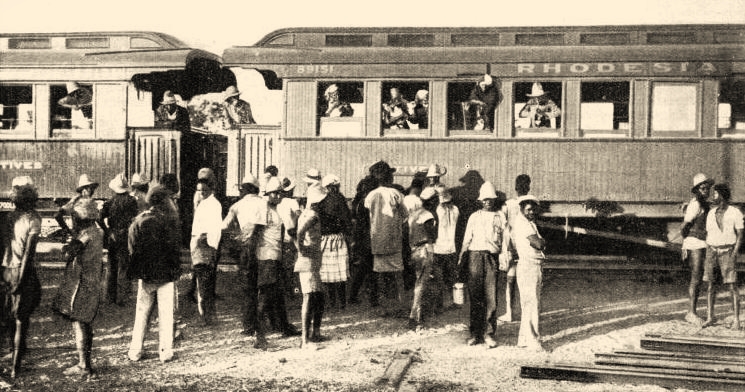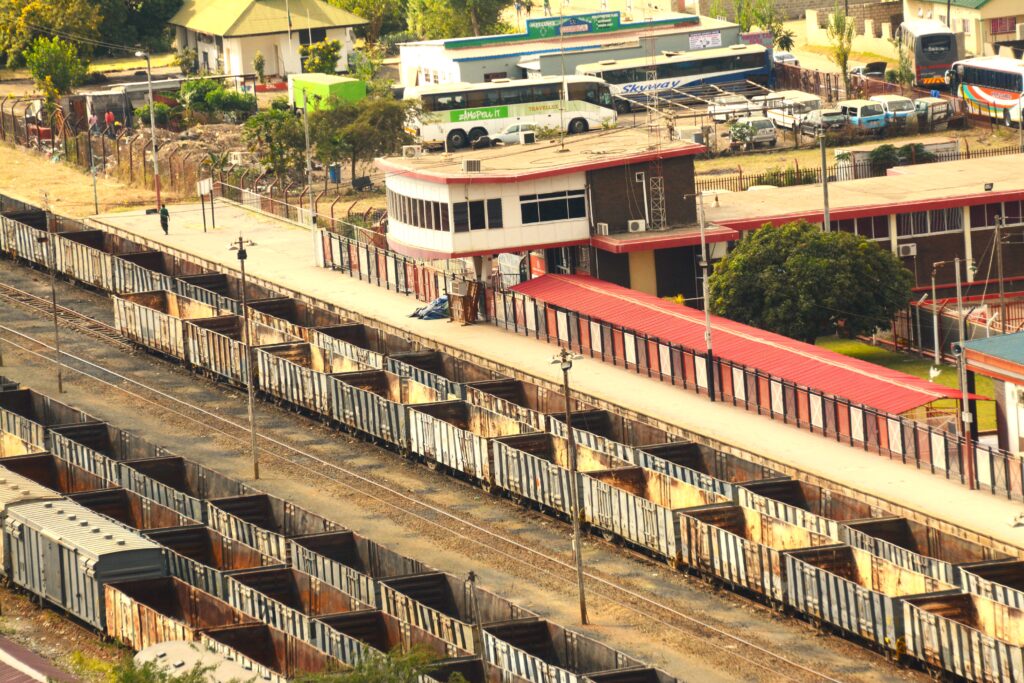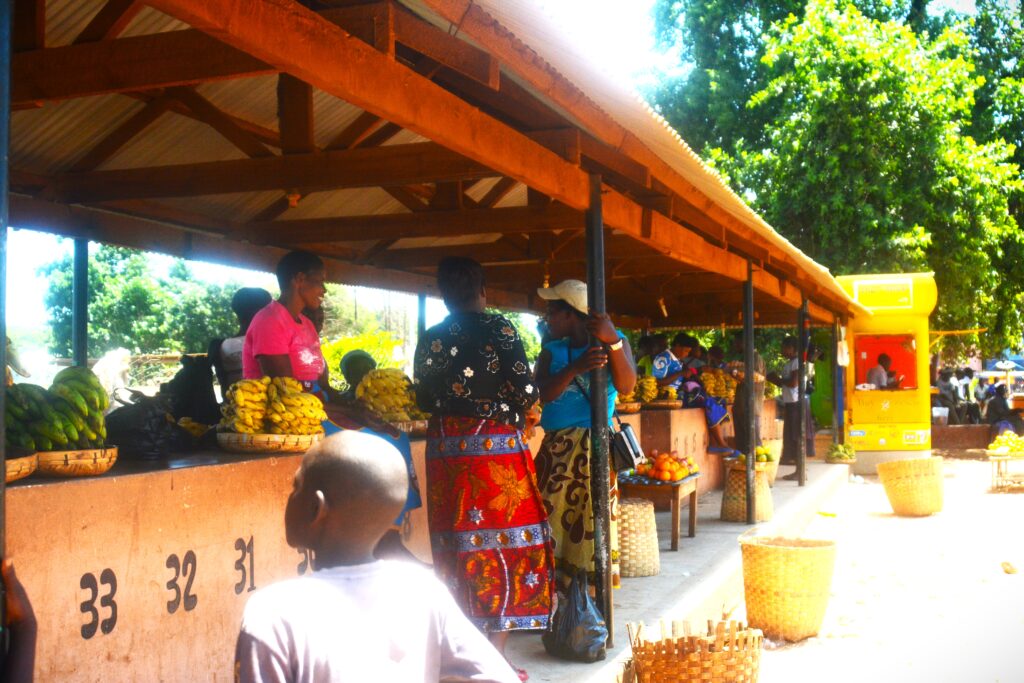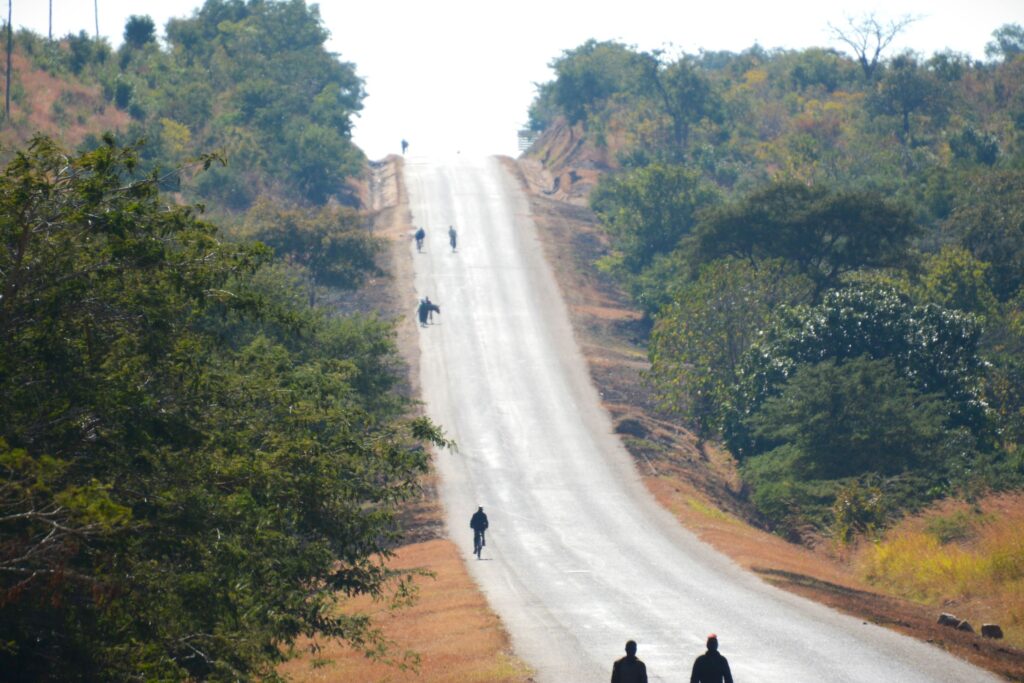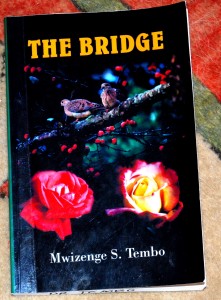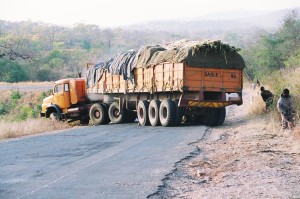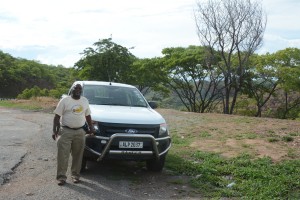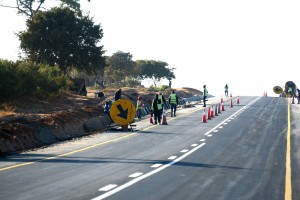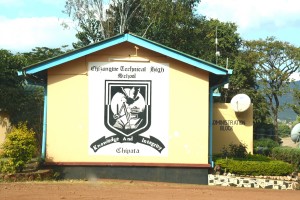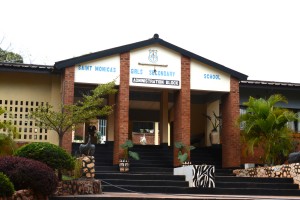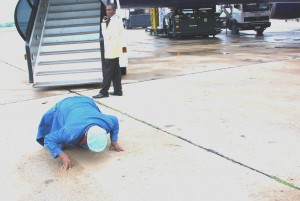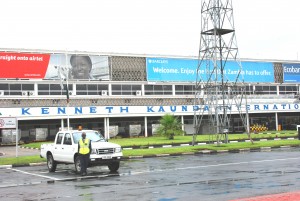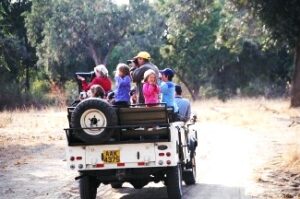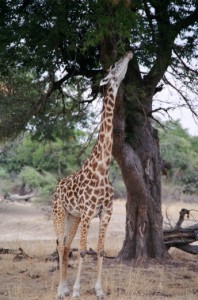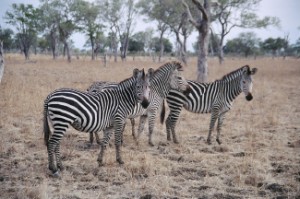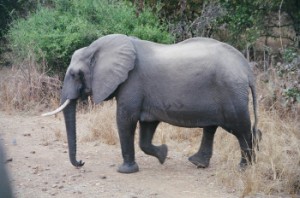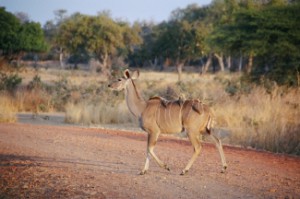Part One
The build up to my first International Flight started one morning when I lived in Lusaka in February 1977. I received in the mail the acceptance letter to go to Michigan State University for my Masters Degree. My two housemates and very close friends immediately began to spread the news. The flight was in Mid September and I had all those months to bask in the glory and sheer buzz. Two weeks before my departure that Sunday morning though, one of the most cruel things happened.
Word spread that there was going to be the mother of all parties on Saturday night in Kitwe at one of the close bachelor friend’s house. I was flying out of Lusaka International Airport that Sunday morning at 10:00 am. All the beautiful nurses from Mufulira Hospital, Kitwe General Hospital, Ndola, and Lusaka were going to be there. There was not only going to be plenty of Mosi but the just released heavy music from the Nigerian Fela Ransome Kuti, the new album “Gentleman” or “Gentomani” was going to play all night. Since I was a party animal, this created a dilemma for me. My two dear friends began to tease me mercilessly; that I was going to miss the beautiful girls, the music, the booze.
My friends suggested that I go to the party that Saturday night. Then at about 6 am that Sunday morning one of the friends who owned a red Fiat 127 could drive me to the Ndola airport where a Zambia Airways flight was leaving for Lusaka at 7 am. I could then make the connecting flight to London at 10 am in Lusaka. I thought of all that could go wrong, I dropped the idea. But I was still so torn that I agonized about this for two weeks.
Part Two
My two dear housemates and friends left Lusaka for the party in Kitwe that Saturday morning. I spent most of the day packing feeling rather morose, lonely, and sad. In the evening I went to the nearby Kaunda Square Shebeen for a few last Mosi to bury my sorrows. When I woke up in the morning, I discovered that my packing had not gone very well the previous night. So I got a taxi and quickly dumped all my stuff in it and drove to my uncle’s house in Northmead where I deposited everything I was leaving behind which was a lot. I was late arriving at the airport. I arrived at 9:00am and the plane was leaving at 10:00am. I should have been at the airport two hours earlier. There were massive crowds at the Zambian Airways check-in counter.
As I checked in, I overheard alarm between the two Zambia Airways women employees. After a brief argument, one of them said to the other:
“Just push him there. After all it’s not your fault that they made a mistake”.
I didn’t pay attention to all to this detail as I just wanted to get on the plane. It was hot and I was sweating. As I finally walked into the International Departure lounge to sit down and catch my breath, I heard this on the public intercom.
“Will Mr. Tembo, passenger to London please report to the nearest phone. Will Mr. Tembo, passenger to London report to the nearest phone. Thank you.”
I rushed to the nearest phone.
“Hello, Mwana Mwizenge,” a very deep rusty sleepy voice said. “I thought I should say bye to you.” It was my friend Ben calling from Kitwe.
“The party ended at six this morning. You remember that girl, Jane Lungu, from Kitwe Nursing School that you had an eye for? She was there and was asking for you. Mary Mafuleka from Ndola was there too. Banda (the host) had emptied several crates of mosi into the bath tub and put in it some huge blocks of ice from Lakes and Fisheries. The Mosi was cold. We danced all night. Banda just drove 4 girls back to Mufulira.”
I could have strangled the son of a gun if he had been three yards from me. How could he be so cruel? We made some small talk.
“Please, send me some blue jeans when you get to America. I am going to sleep now.” He hang up. I placed the phone on the receiver very slowly all the while contemplating what could have been if I had been at the mother of all parties.
Part Three
Passengers were already heading out of the only gate to board the plane. Once I had entered the very first cabin, the hostesses welcomed and directed me to about the fifteeth row seat at the very back of the first cabin. She offered to put my coat away and immediately asked if I needed a drink. I was beginning to like this already. It was better than what my uncle had said about hospitality on international flights. The Boeing 707 was jammed judging by the hordes of people who walked by and disappeared to the back of the plane beyond the thin curtain.
We took off as if going toward Chongwe or the Eastern Province along the Great East Road. But soon we sharply veered left. The beautiful Zambia Airways hostesses kept asking me practically every few minutes if I was comfortable, needed anything, if the air conditioning needed readjusting, or if I needed a glass of red or white wine, a soft drink, or a beer. I didn’t want to appear to be a fontini like Zambians would say. So I declined the offers and instead lay back contemplating the mother of all parties that I had just missed in Kitwe. The traffic of hostesses between the front and rear of the plane was thick with assortments of drinks and monies going back and forth. Soon meals were served. I sipped my second coke and soon had to go to the bathroom.
After I used the bathroom, out of sheer curiosity I pushed the dividing curtain and peeked to see what was behind it. The plane stretched for what looked like a mile behind the cabin I was sitting in. People were packed and squeezed shoulder to shoulder like sardines. They were buying their drinks. I didn’t have to buy my drinks. That’s when the eureka moment happened. It hit me: “I had been put in the first class!” Zambia Airways had overbooked the economy class. I had arrived late and so I had been pushed into the first class.
Things began to go through my head as I sat down in my first class seat with lots of room to move my elbows. I could ask for any drinks, any food, anything short of asking the gorgeous hostess for a date or to sleep with me. I wanted to start with red wine, then may be white, may be green, yellow, may be all the colors of wine available. Wait, may be I could drink mosi first, and then try German, Italian, and other foreign beers. But I didn’t want to pass out on the plane and arrive in London in bad shape. Then I could really be a fontini. So it was that afternoon that I settled for large generous glasses of red wine, and asked for various magazines to read.
As we flew over the red sands of the barren Sahara Desert, I was on my second glass of wine and holding my own and trying to look very cool and sophisticated, or like I belonged in the first class. Something told me that the hostesses were not fooled and probably most of the regular first class cabin passengers were not fooled either. This did not deter or faze me. I didn’t drink anything the last hour as we flew over Southern France before we landed at London’s Heathrow International Airport. The sunset cast golden red rays in the cabin as the plane smoothly touched down. Everyone in the cabin clapped and cheered including Zambia’s Minister of Foreign Affairs at the time, Siteke Mwale, who was sitting eight seats in front of me. I didn’t know at the time that something would happen to me that night at the hotel that would threaten to abruptly end my first international trip.
Part Four
After coming out of immigration and customs, I caught the courtesy bus to the hotel near Heathrow Airport where I was to spend the night before the connecting flight to America the following day. I checked into my immaculately clean room. I took a shower, put on some clean clothes, and went downstairs for dinner.
When the waiter brought the menu, I didn’t recognize a single food. I didn’t want to eat a salad because the idea of eating raw green leaves like a goat would in the village back home did not appeal to me. When I went through the menu the second time, I recognized a dish that said: “Rice with curried something”. I pointed to it and asked the waiter to serve it to me. After all, rice was the closest to the Nshima traditional Zambian traditional staple meal.
Back in my hotel room, I suddenly became very nauseous. I began to breathe rapidly and soon there was sweat all over my body especially my face. I thought I was going to die alone in London on my very first trip abroad. What a way to die! But I had faced so much adversity in life since I first went to Rukuzye Primary Boarding School alone for my Standard two at the age of nine years in 1963. This was going on for an hour and I was going to give it another 10 minutes before calling the desk for medical help. The nausea was so bad that I rushed into the bathroom as I heaved out everything in time uncontrollably. I got violently sick atleast five times in the toilet. Suddenly I felt so much better.
I laid on my bed for a while and if the symptoms came back I would then report to the hotel desk. I suddenly felt hungry. This was a good sign. I drank lots of water to avoid dehydration. But I was not about to eat anything from the hotel again. I made a cup of black tea in my room and sipped it slowly. I soon went to bed and slept soundly.
When I woke up in the morning, I felt fine. I took a shower and skipped any meals at the hotel. I caught the courtesy bus and was in the Heathrow International departure lounge by 10 am. My plane to Chicago was at twelve noon. I ate some breakfast and enjoyed a Castle Lager, which is a kissing close cousin of the Mosi beer.
Part Five
There was a huge wall in the big crowded Heathrow Airport lounge which had all the departing international flights listed. When the just departed planes were removed and the ones ready for boarding added, there were loud rapid continuous rattling sounds like thousands of falling dominos as the words and numbers were moved up, some down, and some disappeared. This was amidst continuous echo of intercom announcements informing passengers of boarding planes and other sundry information.
I saw a tall skinny brown African man with a goatee beard walking. He was in a hurry. I recognized him as Gwangwa Mzeta a South African who worked with the Pan African Congress (PAC) of South Africa. I called his name and he called mine. We shook hands vigorously as we laughed. We had shared the house at the Institute in Lusaka with his African American wife and their 8 months old daughter. She was conducting research for her Ph. D. dissertation. They had left Zambia months before perhaps never to meet them again.
“Tembo,” he laughed. “The world is small. Who could have thought of all places we could meet at Heathrow. Where are you going?”
“To Michigan State via Chicago,” I replied. “And you?”
“I am going to Stockholm for a PAC conference. You know the revolution must go on,” he said as he glanced at his watch. “As a matter of fact I must rush to catch my plane. I can see you are liberating that Castle Lager,” he laughed as he pointed at my half full glass of beer.
“Oh, yes,” I replied as we slapped hands. We laughed heartily again as he walked away.
At noon, I boarded the TWA Boeing 747 for Chicago. The plane was so massive compared to the Boeing 707. I sat somewhere toward the back close to where all the smokers congregated. I paid some money for earphones so that I could listen to music and whatever else was on the channels. A few hours into the flight as we flew over the vast blue Atlantic Ocean, I fell in love with the Jazz channel.
It had music by Louis Armstrong, Ray Charles’ “Georgia on My Mind”, Billy Holiday, and many other Big Band era American Jazz Greats. I was in heaven listening to the piercing saxophone of Armstrong in “When it’s Sleeping Time Down South”, then Glen Miller’s “Chattanooga Choo chooo..” and especially Woody Herman’s “Wood Chopper’s Ball”, Benny Goodman and Count Bessie. At one point several times during the flight I wandered to the front of the plane to peek at the flight cockpit of the 747 with those zillions of instruments.
We landed at O’Hare International Airport in Chicago at 4:00 pm. As I was going through immigration, customs, and finally the baggage claim area, I noticed that American officials seemed very casual compared to their British counterparts. This was the most anticipated part of my trip. How would America look like? What about the people? I was very nervous and tense. As I walked out of the arrival lounge into the street to go to the domestic flight gate, something shocked me as being so wrong.
Americans were not wearing gun holsters and carrying one or two pistols in the holsters ready for street gunfights. I looked at the men and women walking about. I could not believe it. Sure someone besides the police had to carry a visible gun. Was this really America?
When I walked into the bathroom at the domestic departure lounge, I tightly clutched my briefcase under my armpit as the other hand nervously navigated my use of the urinal. When two men both stepped up to the urinal on both my sides, I tightened up. My eyes rolled sideways like a chameleon to see what the two men were up to. I was sure I was going to be mugged any second. I expected anyone or both of them to stick a gun in my rib cage ordering me to give them all my traveler’s checks. When they both walked out harmlessly. I breathed out.
After being in the domestic departure lounge for an hour waiting for the plane to East Lansing, I concluded that all the stereotypes I had held about Americans had been wrong. I had watched too many black and white cow boy movies when I was at Chizongwe Secondary School in the 1960s. After all, the people were just normal. Some of the few African Americans I saw looked just like Zambians back home.
The End
If you liked this story, you can read a whole novel I have written titled: Mwizenge S. Tembo, The Bridge, Lusaka: Julubbi Enterpriese Ltd, 2005, pp. 190. Available at Book World at Manda Hill Shopping Mall in Lusaka, from Lusaka Cell 095- 576-1375, and from the author. There is a blog about the novel on this same web page. The novel The Bridge can also be browsed on line on Google.
http://www.bridgewater.edu/~mtembo
Tags: adventure, travel
[1] AUTHOR: Mwizenge S. Tembo was born and grew up among the Tumbuka people of Eastern Zambia. He obtained his B. A. at University of Zambia, M. A. and Ph. D. at Michigan State University in 1987. He worked for ten years at University of Zambia before he came to Bridgewater College in Virginia in 1990 where he teaches Sociology. He is Professor of Sociology. He has just published a novel of a love story between an African man and an Irish woman titled: The Bridge: a Transoceanic Love Story. It available at Bridgewater College Bookstore and amazon.com
